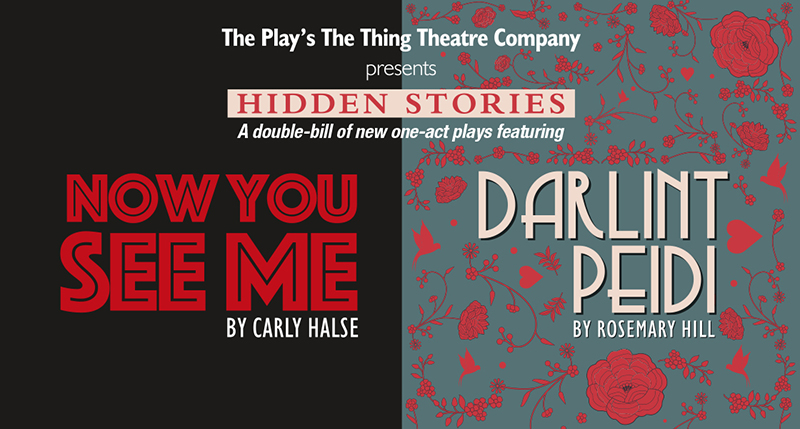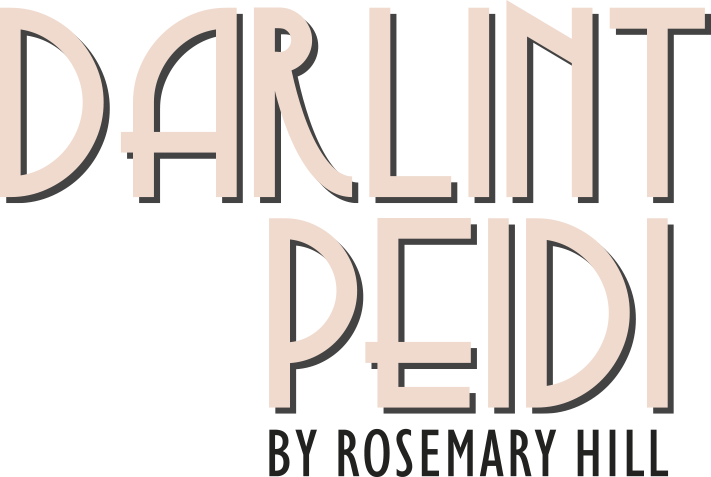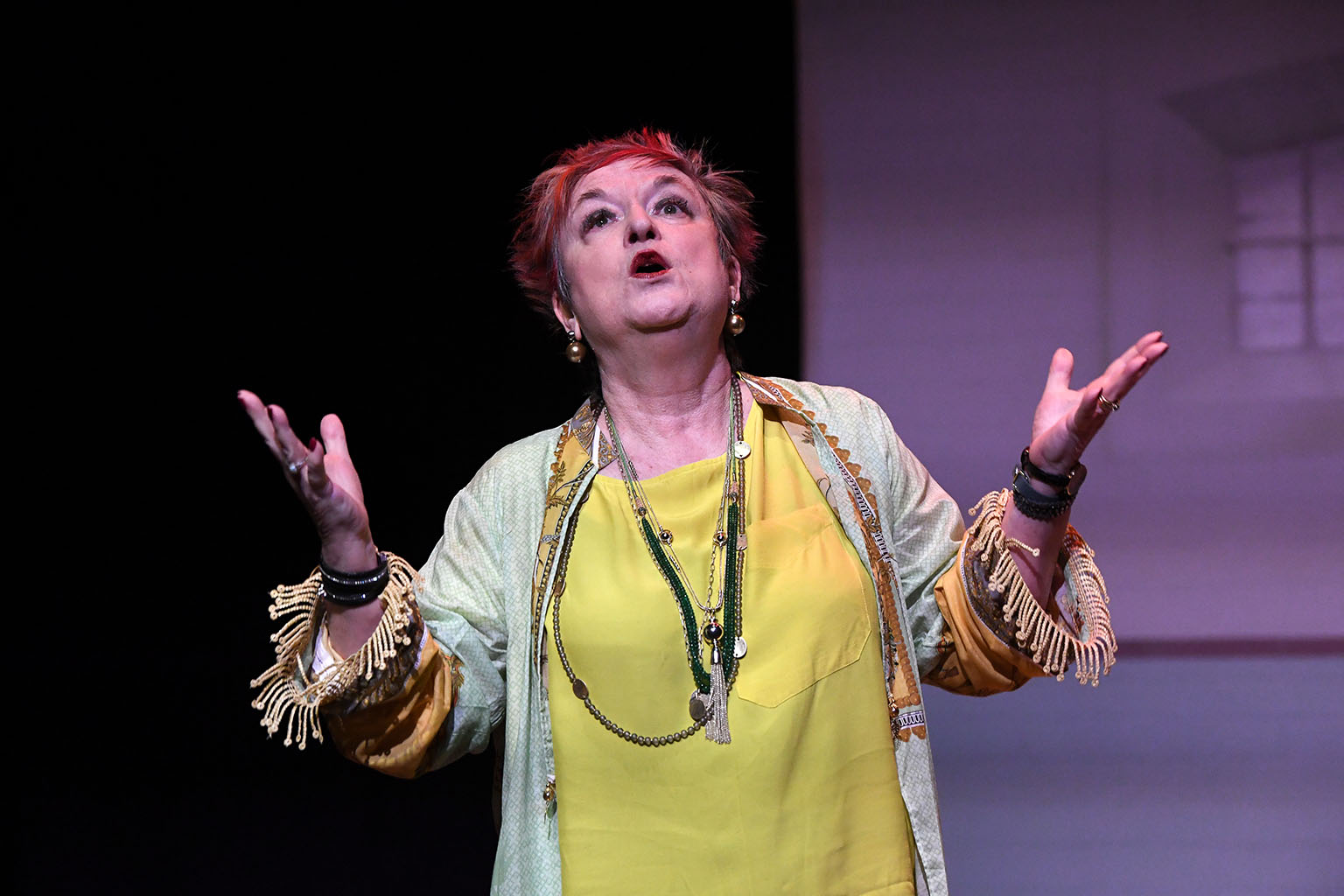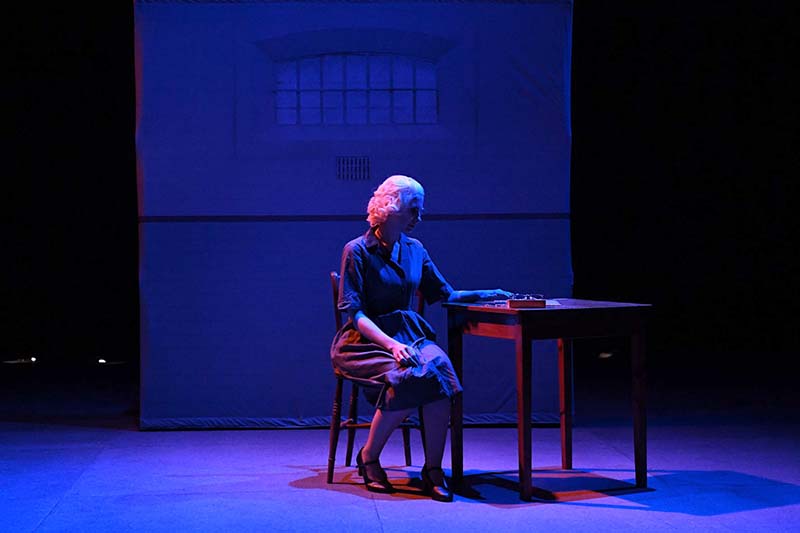Hidden Stories – International Women’s Day
10th March 2023 Women failed by the justice system highlighted in new plays by women playwrights.
Women failed by the justice system highlighted in new plays by women playwrights.
#EmbraceEquity this International Women’s Day
You might think you know about the historic cases of Edith Thompson and Ruth Ellis - two young women hanged for murder. These famous cases shocked the nation, but do we really know the full story?
International Women’s Day is the time to tell these stories, which are still very relevant today.
Touring from 9th March, two plays written by two Milton Keynes based playwrights, Rosemary Hill and Carly Halse, highlight the hidden stories behind both cases that led to wrongful convictions and severe miscarriages of justice.
Rosemary Hill, playwright and Artistic Director of local theatre company The Play’s the Thing says: “We are often fed a certain narrative by the media, which comes to be the one that everyone accepts, but there is always a great deal we don’t know.”

Rosemary’s play, ‘Darlint Peidi’, tells the hidden story of Edith Thompson, a 29-year-old woman hanged for the murder of her husband, Percy. Edith was vilified by the media as a vile seducer and a scarlet woman who incited a young man to kill. Is this who she really was?
Edith Thompson was a bright, intelligent, and articulate young woman whose life in the 1920s was full. She was incredibly successful as a buyer for a milliner in London earning more than her husband. After marriage she chose to continue working, which was unusual in those times.
Unhappy in her marriage she began an affair with Frederick Bywaters who was nine years her junior. He was a sailor on the ship the Morea and her lodger. At first he and Edith’s husband got on very well. Freddie often wasn’t there but they communicated regularly via letters. She would write about her day-to-day life, intimate things, and would describe their perfect life together after her husband was gone.
On 3rd October 1922 her husband was stabbed to death by Bywaters. He was insistent that Edith had played no role in his crime. They were both hanged in 1923.

It was the letters that were her downfall. The letters were produced as evidence of incitement to murder, and she was judged for what she had written to her young lover. Playwright, Rosemary Hill, says: “As a true romantic and an imaginative writer, she failed to understand that her words had consequences. She once wrote that one woman had lost three husbands, but she couldn’t lose one. It was a joke but could easily be misinterpreted. Edith was hanged for adultery and not for murder. She was a victim of a male dominated society that let her down severely. The case was awash with controversy and the media became dangerous with sensationalising inaccurate reporting that contributed to a miscarriage of justice.”
If this case took place in the more liberated era like the swinging sixties, would she have had more sympathy?
Miscarriages of justice occur far more frequently than we dare to imagine. Edith’s case happened 100 years ago, yet we are still seeing women being described in similar terms in today’s media.
Taking Darlint Peidi on tour during the 100th year anniversary of Edith Thompson’s execution, we hope will challenge and raise awareness of not only her miscarriages of justice, but others too.”

The second thought-provoking and gripping new play, Now You See Me’, is written by local actor and playwright, Carly Halse. It looks at the tragic story of Ruth Ellis, the last woman hanged in 1955.
Ruth made the headlines when she shot her lover, David Blakely, outside the Magdala pub in London. On the surface her life was full of fun, glitz and glamour, but what really drove Ruth to kill the man she loved?
Ruth was a complex young woman who had been abused by men throughout her life from her father to her lovers Blakely and Desmond Cussen. She was a mother to two children, and she was determind to give them what she had never had. She was a night club hostess who worked and played hard.

She met Blakely at the club where she worked and suffered a violent and abusive relationship with him for two years. A few days before the murder he had brutally beaten Ruth and she suffered a miscarriage.
On that fateful night her other lover, Desmond Cussen, gave her a gun, showed her how to use it and drove her to the pub.

Carly says: “It seems like Desmond Cussen loved her very much but there is evidence to point towards him giving her the gun, teaching her how to use it and driving her to the Magdala pub. This is a real sticking point for me. If you love someone why would you do all that because it’s not going to work out that way.”
Following the shooting, she confessed to an off-duty male police officer that she did it. From the moment she was arrested she would once again be let down by men all swayed by prejudice. She was taken in and questioned by male police officers, her solicitor was male, as were the barristers and judge.
Information was omitted from the courtroom and from the press, such as Cussen’s involvement and the abuse she had suffered. Why keep this vital information that could have saved her life ignored?
The media portrayed her as a Femme Fatale and a sexual predator who neglected her duties as a mother. When she carried out the murder, was she in her right mind? Was she suffering psychologically from the years of mental and physical abuse? We would acknowledge that today, but not in the 1950s. If this case were tried today, would she have been convicted of manslaughter and not murder?
Ruth’s case was pivotal in bringing about the defence of diminished responsibility.
Playwright, Carly Halse, says: “What draws me to her as a person is that she was a lot more ambitions and intelligent than a lot of people gave her credit for. She came from a tragic background, and she had a horrid life, but she was determined to make something of the life, but sadly it didn’t happen.”
“One thing that breaks my heart is just how much the world and the system she was living in was against her from day one and that feels really sad.”

Rosemary continues: “People’s judgements on elements such as the age gap between Edith and Bywaters, Edith’s letters, Ruth’s job and her appearance, are not made on facts. They are susceptible to prejudice."
“Innocent women were executed in a male dominated society. They had no hope right from the moment they were arrested.”
Carly concludes: “These stories are still happening day to day, miscarriages of justice, the system screwing people over. The message of both of these pieces is that these things are still happening, these stories are still happening everywhere, all over the world, day to day and hopefully they will prompt people into asking what can we do to change that?"
Hidden Stories - ‘Darlint Peidi’ and ‘Now You See Me’ - is heading out on a nationwide tour from 9th March to 19th May 2023 at venues, including The Guildhall in Thetford, The Place in Bedford and The Brighton Fringe.
Click here for further information and to purchase tickets.
